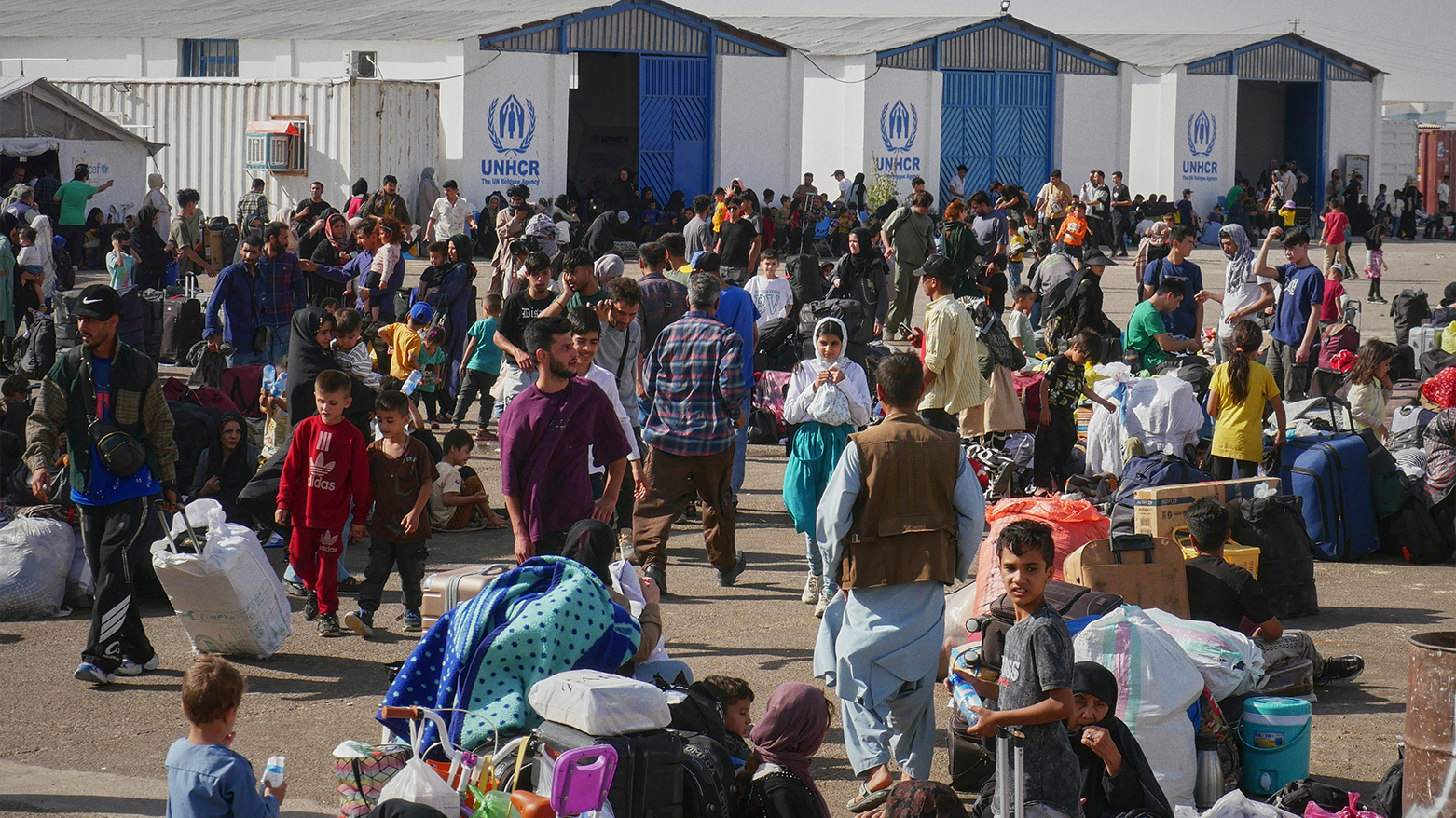Nearly Half a Million Afghans Return from Iran as IOM Warns of Humanitarian Crisis
Nearly 450,000 Afghans have returned from Iran since June after Tehran's order for undocumented migrants to leave by July 6, the IOM said. Most were forcibly deported, overwhelming Afghanistan’s fragile infrastructure and sparking urgent calls for global aid.

By Kamaran Aziz
ERBIL (Kurdistan 24) — Nearly 450,000 Afghans have returned from Iran since the beginning of June, following Tehran’s directive for undocumented migrants to leave by July 6, the United Nations’ International Organization for Migration (IOM) told AFP on Monday.
According to IOM data, 449,218 Afghans returned from Iran between June 1 and July 5, pushing the total number of returnees from Iran in 2025 to 906,326. A record 256,000 returned in June alone, marking an unprecedented surge and placing extreme pressure on Afghanistan’s already overburdened infrastructure and humanitarian response systems.
"The sheer number of returns from Iran, coming so soon after a spike from Pakistan, is placing immense strain on an already fragile response system," IOM Director General Amy Pope said. "Families are arriving with nothing but the clothes on their backs, exhausted and in urgent need of food, medical care and support. The scale of returns is deeply alarming and demands a stronger and more immediate international response. Afghanistan cannot manage this alone."
The sudden influx stems from the Iranian government’s 20 March deadline requiring undocumented Afghans to leave. IOM reported that 70 percent of the returnees were forcibly returned and 99 percent were undocumented. On a single day, June 25, more than 28,000 individuals crossed back into Afghanistan.
Iran’s attorney general on Saturday called on all foreigners living in the country illegally—especially Afghan nationals—to leave “as soon as possible” or face legal action, warning of prosecution amid rising public pressure and regional tensions, according to the Associated Press (AP).
“Foreign nationals, especially brothers and sisters from Afghanistan whom we have hosted for years, help us so that illegal individuals leave Iran in the shortest period,” Attorney General Mohammad Movahedi Azad said, as quoted by the official IRNA news agency.
Iranian authorities reported in April that more than 6 million Afghans are currently living in Iran, with up to 2.5 million residing without legal status. The government has recently ramped up efforts to enforce immigration laws, driven in part by growing domestic frustration and the country’s worsening economic challenges.
In recent months, Iranians have increasingly voiced concerns about the rising number of Afghan nationals, with some accusing them of spying for Israel following the outbreak of a 12-day conflict between Iran and Israel in June.
Iran’s top diplomat in Kabul, Ali Reza Bikdeli, visited the Dogharoun border crossing this week and pledged to help facilitate the repatriation of Afghans. “We are working with Afghan authorities to ensure a smooth and humane return,” state TV quoted him as saying.
IOM facilities in Herat and Nimroz provinces, as well as at Islam Qala and Milak border crossings, have provided immediate humanitarian assistance to over 23,000 returnees in June. Services include food, temporary shelter, transportation, healthcare, psychosocial support, and cash assistance, especially for women and children.
"Returns must be safe, dignified and voluntary, and manageable for receiving communities," IOM stressed. The agency has warned that local services in Afghanistan are nearing collapse, threatening access to essential care for both returnees and host communities.
The latest figures come amid a broader regional trend. Between April and May, Pakistan’s Illegal Foreigners Repatriation Plan (IFRP) led to the forced return of nearly 110,000 Afghans in a single month. Since September 2023, more than 2.43 million undocumented Afghan migrants have returned from Pakistan and Iran combined, more than half of whom were forcibly returned, according to IOM.
"Most of the people returning to Afghanistan are in a state of acute vulnerability, having been forced to leave behind their homes, possessions, and jobs," said IOM Deputy Director General for Operations Ugochi Daniels. "At this most fragile time, we appeal to the international community to help us meet these urgent humanitarian needs."
The IOM has provided post-arrival assistance to more than one million Afghan returnees since the surge in repatriations began in September 2023. However, it warns that it is reaching only 10 percent of those in need due to a severe funding shortfall.
Mihyung Park, IOM’s Chief of Mission in Afghanistan, emphasized that "with a new wave of large-scale returns now underway from Pakistan, needs on the ground are rising rapidly—both at the border and in areas of return that are struggling to absorb large numbers of returnees."
IOM and its partners have reiterated their call for all countries to halt forced returns until conditions in Afghanistan allow for safe, dignified, and voluntary reintegration. Without urgent funding and regional cooperation, the organization warns, the situation could fuel broader instability across the region.